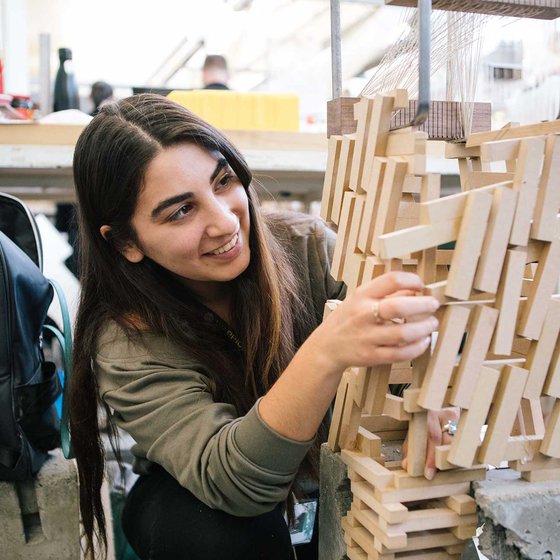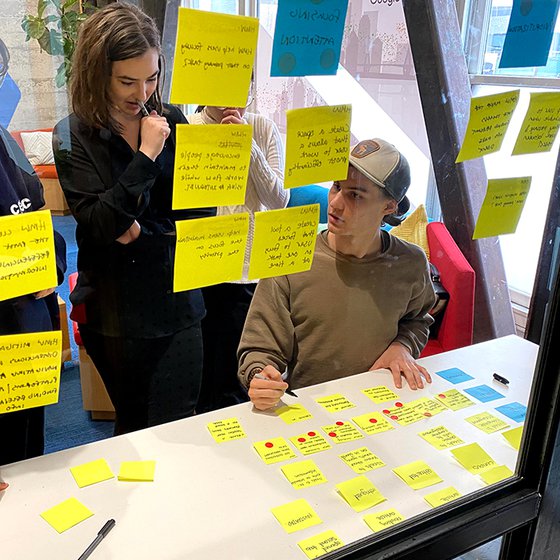
BFAIndustrial Design
Explore product solutions of the future through human-centered design and the principles of a circular economy
Overview
Design for a sustainable tomorrow
Industrial Design students at CCA are forward thinkers dedicated to fostering a sustainable future. With a commitment to positive social impact, they embrace ethical practices known as circular design, which envisions the life cycle of a product across human and natural environments. You’ll be encouraged to nurture your curiosity, push the boundaries of our industry, and align your values with your professional goals. You’ll graduate as an adaptable design leader ready to navigate evolving technologies and innovate in the global design landscape.
Students can also choose program minors to complement their practices. Enhance your ability to speak the language of sustainability within global bands with a minor in Ecological Practices, or develop the skills needed to craft your own pieces with a minor in Furniture Design.
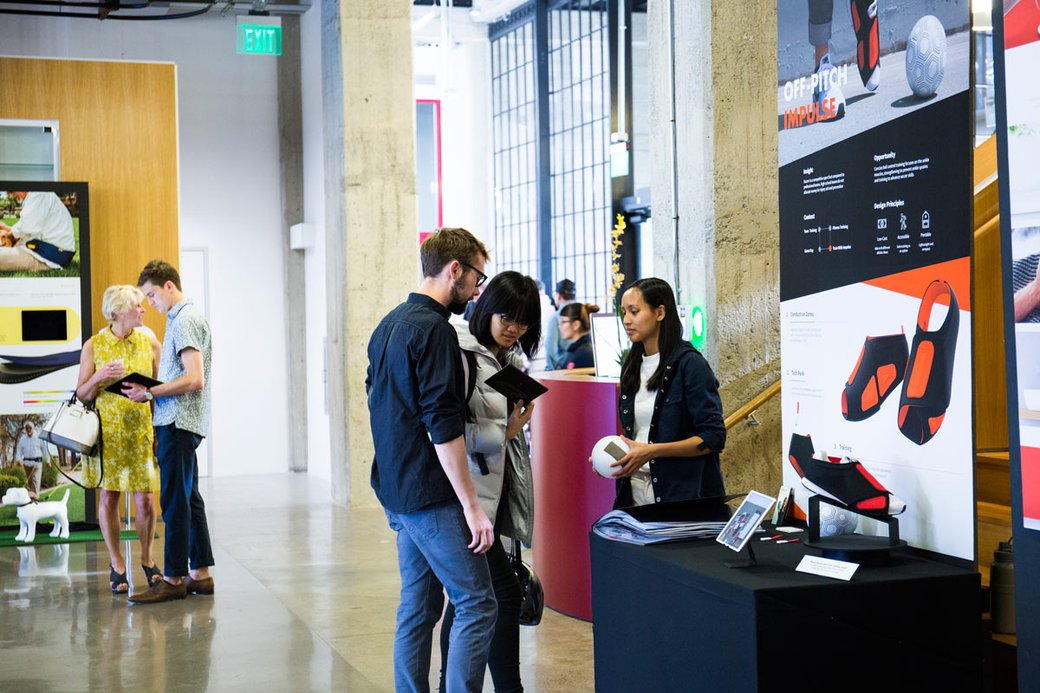
Participate in impactful conversations
Our Industrial Design program emphasizes inclusion while integrating diverse human sensory experiences and cultural backgrounds alongside critical dialogue on social justice and equity. You’ll learn how core principles such as form follows function and circular design are linked to conversations that place people at the center. And in many of our industry and community partnerships, you’ll engage in meaningful dialogue on themes of diversity and inclusion.
Join a world-class center for design innovation
CCA is located in the heart of the Bay Area’s innovation corridor, surrounded by startups, entrepreneurs, emerging design firms, global brands, and leading science and technology companies. The Industrial Design program is perfectly positioned within one of the top schools of art in the country. You’ll learn from the immense talent of your creative peers and draw inspiration from art history, critical theory, and studio courses that span multiple disciplines.
Studios & Shops
Creatively problem solve, craft, and prototype

Explore your ideas by designing solutions for complex problems in our new state-of-the-art studios, labs, and shops. Explore new ways of prototyping with sustainable materials, functional forms, robotics, and intelligent digital machines, while you develop your critical thinking and creative problem-solving skills. Through diverse techniques, including generative ideation, sketch modeling, 3D printing, vacuum forming, laser machines, and ceramic and metal craft shops, learn to work with all possible materials and prototyping methods.
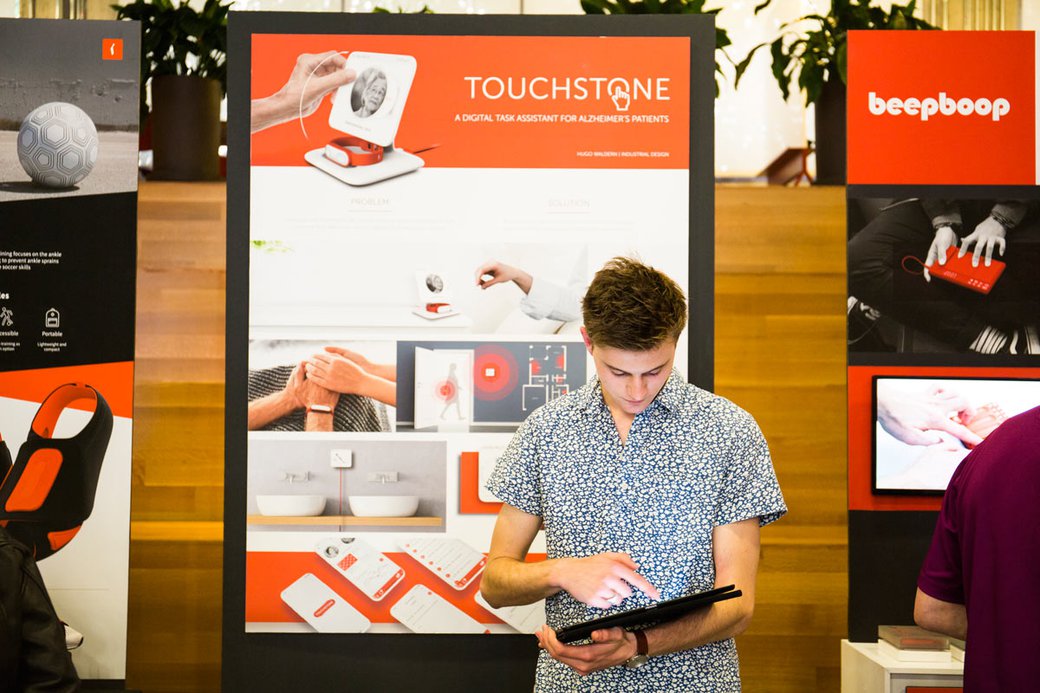
Team up with innovative companies
Corporate-sponsored workshops and studios are a hallmark of the Industrial Design program. You’ll gain experience by working on real projects and products, and developing design solutions for some of the most innovative companies in the Bay Area and around the world. Recent partners include Google, Samsung, Lenovo, Lucid, Adobe, Audi, Bosch, Intel, Workday, and Volkswagen.
During your third year of coursework, you’ll participate in a summer internship for a Bay Area company or design firm. You can also choose to launch your own digital industrial design portfolio, allowing you to explore specific design industries, brands, or interests. Past students have completed internships or secured full-time positions at companies such as Google, Apple, Facebook, fuseproject, PA Consulting (Astro Studios), Heath Ceramics, IDEO, Lunar, The North Face, Pixar, Timbuk2, and Williams-Sonoma.
Your design life at CCA
- Design and imagine product experiences at least five to 10 years into the future
- Master circular design principles and steward the future of sustainable design
- Make and build with design thinking and research and prototype each step
- Work with industry partners in corporate-sponsored studios
- Intern with Bay Area companies or design firms
- Launch your own digital industrial design portfolio
Additional studios, shops, and labs
Faculty
Bay Area design leaders
Our faculty are leading industrial designers in the San Francisco Bay Area, who have started companies as well as launched products for global brands including Apple, Samsung, Nike, and more. With a range of experiences from corporations to startups and from novel products to built brands, they mentor students who want to explore their own unique path and envision a sustainable future.

Shu Bertrand, Chair of Industrial Design. Photo courtesy of Aplat.
Chair of Industrial Design Shu Bertrand is an accomplished industrial designer with over 25 years of experience working in Silicon Valley, Seoul, and Milan. She has worked at notable companies such as LG Electronics, Steelcase, Siemens Medical, and Incase, as well as design agencies like Astro Studios and IDEO, before launching her own brand, Aplat, a gourmet soft-goods design collection that inspires us to slow down, share good food, and care for our planet. As Aplat’s founder, Shu is leading designers into a circular design economy and making products that are healthy for the planet’s future.
In addition to her work with Aplat, Shu is a member of The Council, a startup investment organization, a founding member of The Good Future Design Alliance, a member of the Accessions Committee at the SFMOMA 2024, and a member of the Executive Board of the Museum of Craft and Design. She is also an Industrial Designers Society of America (IDSA) member and has served as the Jury Chair for the Industrial Design Excellence Awards (IDEA) competition from 2014–24, advocating for sustainability across IDSA’s programs.
At home, Shu is part of a trilingual-speaking family, conversing in Korean, English, and French. She is a mother of two teenagers preparing for college next year. As the Industrial Design chair at California College of the Arts, Shu is deeply committed to creating education in the circular economy and fostering conscious design entrepreneurs for the future.
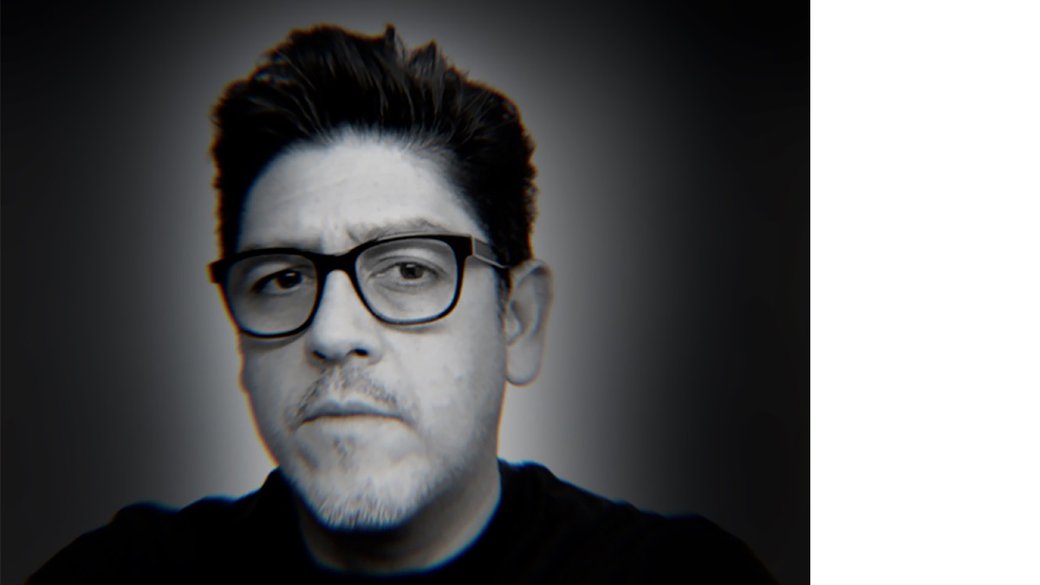
David Gonzalez, Assistant Chair of Industrial Design
Assistant Chair David Gonzalez is inspired by thoughtful storytelling, meaningful invention, sustainable practices, and a little rule-breaking. As a multidisciplinary designer in both product development and industrial design, Gonzalez has led many projects in brand identity, consumer electronics, computer hardware, packaging, soft goods, user experience, and more. His work has been recognized with awards from the Industrial Designers Society of America, Business Week, i-D Magazine, iLounge, and the Consumer Electronics Show.
Curriculum
We think with our hands
Invent creative solutions for real-world challenges
Our program fosters a community of design thinkers who explore the future of human-centered behaviors and needs, evolving technology, and urgent challenges with multiple perspectives.
In core studio courses, you’ll work with project briefs and design challenges just like those in startups, corporations, and creative agencies. These real-world projects prepare you for roles in product and service design, sustainability, circular design-driven companies, wellness and healthcare, high-performance sport brands, entertainment, lifestyle products, consumer electronics, and beyond. You’ll graduate with fully researched, prototyped, and tested concept designs, which showcases your ability to inspire innovation making your student portfolio stand out. View sample course descriptions.
Add a minor to deepen your practice
Turn your product ideas into reality with full-scale building and prototyping using actual materials and craft methods with our minor in Furniture. Take courses to develop your woodworking skills, craft finished pieces of furniture, and learn how traditional craft can complement your practice.
Additional relevant minors include the minor in Computational Practices or the minor in Ecological Practices for those designers who wish to more deeply engage in ecology, environmental justice, and sustainability. Learn more about undergraduate minors.
Investigate ideas through every dimension
Before diving into your chosen major, every undergraduate participates in the First Year Experience. Students explore a wide range of materials and tools over the course of two semesters. Faculty from different disciplines guide studio projects, group critiques, and theoretical discussions, setting students up for success throughout their major coursework.
BFA Industrial Design
Core Studio
- Drawing 1
- 3.0 units
- 2D, 3D, and 4D
- 9.0 units
Industrial Design Major Requirements
- Industrial Design Validation
- 3.0 units
- Industrial Design Inspiration
- 3.0 units
- Modelmaking & Prototype
- 3.0 units
- Design Communication 1-2
- 6.0 units
- Digital Form
- 6.0 units
- Form & Space
- 3.0 units
- Design Ethics
- 3.0 units
- Professional Practice
- 3.0 units
- Investigative Studio
- 3.0 units
- Design Context
- 3.0 units
- Senior Thesis Research
- 3.0 units
- Senior Thesis Project
- 3.0 units
Additional Studio Requirements
- Upper Division Interdisciplinary Studio
- 3.0 units
- Critical Ethnic Studies Studio
- 3.0 units
- Studio Electives
- 12.0 units
Humanities & Sciences Requirements
- Writing 1
- 3.0 units
- Writing 2
- 3.0 units
- Introduction to the Arts
- 3.0 units
- Introduction to the Modern Arts
- 3.0 units
- Foundation in Critical Studies
- 3.0 units
- History of Industrial Design
- 3.0 units
- Critical Ethnic Studies Seminar (2000 level)
- 3.0 units
- Literary and Performing Arts Studies (2000 level)
- 3.0 units
- Philosophy and Critical Theory (2000 level)
- 3.0 units
- Social Science/History (2000 level)
- 3.0 units
- Science/Math (2000 level)
- 3.0 units
- History of Art and Visual Culture (2000 level)
- 3.0 units
- Humanities and Sciences Electives (2000 or 3000 level, at least 6 units must be 3000 level)
- 12.0 units
Total 120.0 units
Careers
Explore the industrial design industry
Our alumni are at the forefront of innovation and sought after by high-tech and sustainability-driven companies eager to embrace their creative vision and ethical design ethos.
With a BFA in Industrial Design, you’ll shape the future of industries across health and wellness, entertainment, sports, transportation, lifestyle, consumer electronics, technology, food, supply chain, and services, as well as pioneer new business models. You might start your own design studio, freelance for industry giants, or showcase your work as a studio artist. You’ll have the power to disrupt industries, ignite change, and leave your mark on the world.
Potential career paths
- Industrial designer
- Chief sustainability design officer
- Circular designer
- Design research & development
- Entrepreneur
- Founder, startup
- Design researcher
- Product inventor
- Product designer
- Package design
- Furniture designer
- Materials designer
- User experience designer
Lead a sustainable future with industrial design
The Industrial Design program is dedicated to nurturing designers and leaders who are driven by purpose, deeply passionate about their craft, and committed to ethical and circular design principles. By the time you graduate, you’ll step into the professional world equipped with confidence and technical digital skills to navigate the advancing design landscape. Fueled by curiosity, you’ll experiment fearlessly and collaborate across different industries.
Industry pathways
- Consumer lifestyle
- Home and housewares
- Consumer fashion
- Consumer electronics
- Product design packaging
- Transportation
- Medical industry
- Film and entertainment
- Furniture and interior design
- User experience design
- Health and wellness
- Fashion accessories
- Space and science
- Future and speculative design
- Exhibition design
- Retail space design
- Robotics design
News & Events
What’s new with design at CCA?
How to Apply
Join our community of design thinkers and makers
Our design students are deeply passionate about crafting beautiful products and meaningful objects that enhance people’s lives while prioritizing environmental sustainability and revolutionizing manufacturing practices to be regenerative and conserve precious resources.
Industrial Design students may immerse themselves in design research to deeply explore discoveries, or they may gravitate toward manufacturing and product development, collaborating closely with engineers to influence supply chain impact. Industrial design can also encompass marketing and product strategy or lead to roles in education, where future design leaders are nurtured.
Find your creative community at CCA







